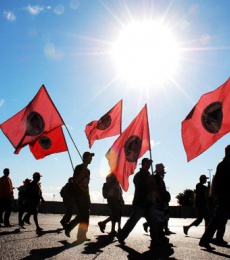The rural social movements that gathered this week at the Unity Meeting of Workers and Peoples of the Countryside, Waters, and Forests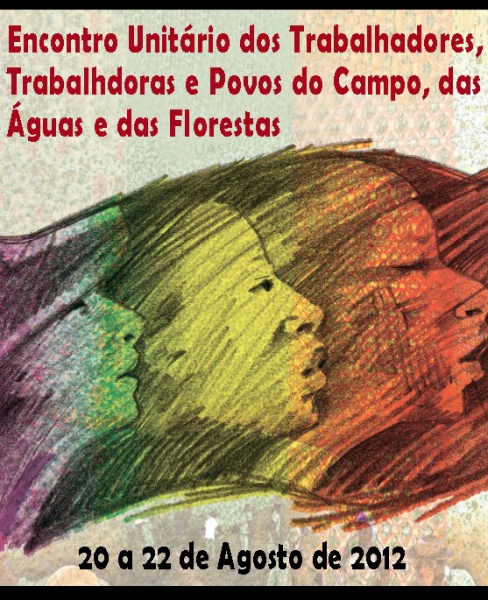 in Brasilia released a joint statement representing a demonstration of the political unity of the peasants, small farmers, landless, indigenous and afro-descendants, along with environmentalists, human rights activists and students who also participated.
in Brasilia released a joint statement representing a demonstration of the political unity of the peasants, small farmers, landless, indigenous and afro-descendants, along with environmentalists, human rights activists and students who also participated.
The meeting is a response to the challenges of our country to overcome inequality in land distribution, which remains unchanged since the '20s, but with economic, social, cultural and environmental risks as a result of the primary specialization of the economy.
The capitalist project underway in Brazil, represented in the countryside by agribusiness, aims to accumulate capital in the primary sector, serving the interests and the rule of foreign capital by means of the transnational corporations.
The offensive of this project causes the crushing and displacement of workers and peoples of the countryside and of the waters and forests. Furthermore, it prevents the implementation of agrarian reform, the recognition and demarcation of indigenous and afro-descendant territories.
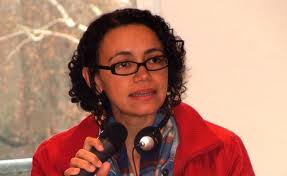 "We need to radicalize the fight for land!"
"We need to radicalize the fight for land!"
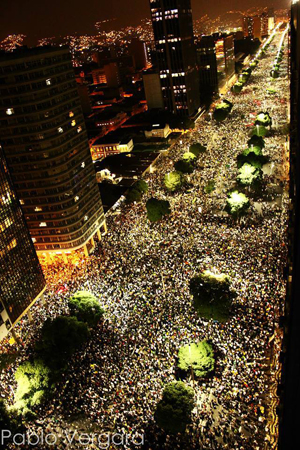 by Eduardo Scolese, of Agência Folha
by Eduardo Scolese, of Agência Folha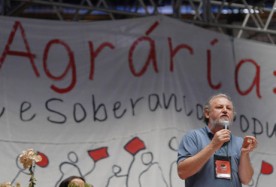
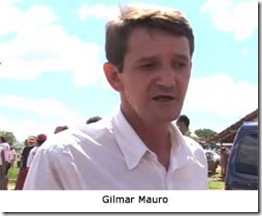 analysis of Marina dos Santos, of the National Coordination of the MST. Read the interview
analysis of Marina dos Santos, of the National Coordination of the MST. Read the interview 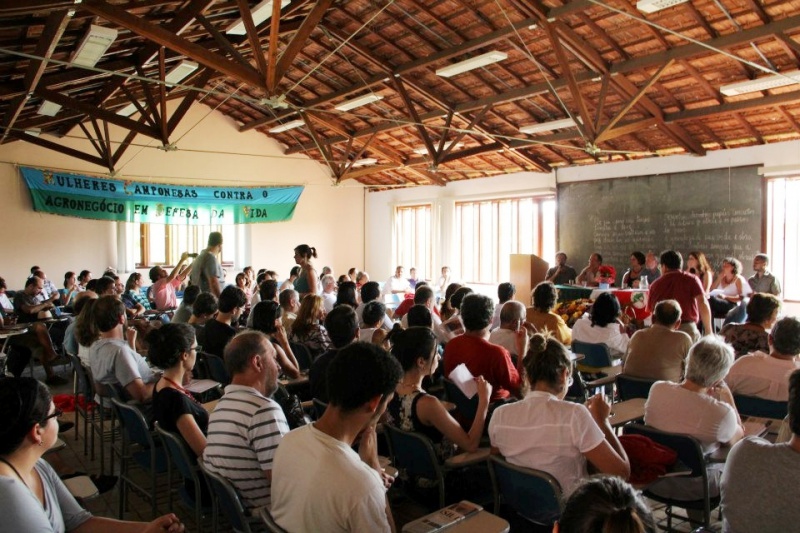
 in Brasilia released a joint statement representing a demonstration of the political unity of the peasants, small farmers, landless, indigenous and afro-descendants, along with environmentalists, human rights activists and students who also participated.
in Brasilia released a joint statement representing a demonstration of the political unity of the peasants, small farmers, landless, indigenous and afro-descendants, along with environmentalists, human rights activists and students who also participated. FINAL DECLARATION OF THE PEOPLES’ SUMMIT AT RIO+20 FOR SOCIAL AND ENVIRONMENTAL JUSTICE IN DEFENSE OF THE COMMONS, AGAINST THE COMMODIFICATION OF LIFE
FINAL DECLARATION OF THE PEOPLES’ SUMMIT AT RIO+20 FOR SOCIAL AND ENVIRONMENTAL JUSTICE IN DEFENSE OF THE COMMONS, AGAINST THE COMMODIFICATION OF LIFE
